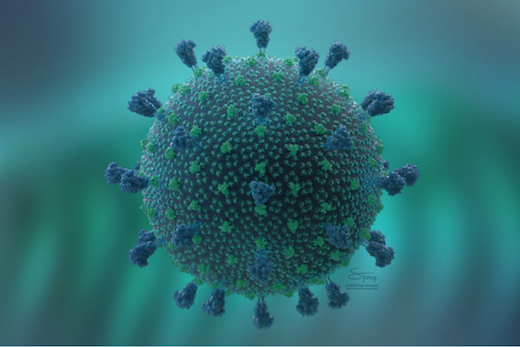The Kaiser Washington Vaccine and Treatment Evaluation Unit, named by the NIH National Institute of Allergy and Infectious Diseases (NIAID) and the Infectious Diseases Clinical Research Consortium as the clinical trial site for a first-in-humans, phase I of a new vaccine study to prevent coronavirus disease 2019 (COVID-19), began vaccinations today. Lisa Jackson, MD, MPH, senior investigator at Kaiser Permanente Washington Health Research Institute, serves as the trial principal investigator of the study:
Safety and Immunogenicity Study of 2019-nCov Vaccine (mRNA-1273) to Prevent SARS-CoV-2 Infection (NCT04283461)
The novel coronavirus COVID-19 outbreak continues to progress and the Infectious Diseases Clinical Research Consortium (IDCRC) including the nine Vaccine and Treatment Evaluation Units (VTEUs) across the country supported by NIAID is involved in launching this trial to address this emerging threat. This trial is expected to enroll approximately 45 healthy adult participants.
“We are proud to have been selected to conduct this innovative trial. We’re prepared and focused on helping to address the challenges of COVID-19,” says Jackson.
COVID-19 starts with cough, fever, shortness of breath, often indistinguishable from other more common respiratory tract infections. In December 2019, the World Health Organization (WHO) announced a cluster of coronavirus cases in Wuhan, China. Now there are over 749,000 cases of the COVID-19 worldwide, including over 3,800 cases in the United States.
“NIAID’s foresight to bring together the nation’s leading vaccine leadership is allowing the IDCRC to quickly support clinical coronavirus research. As evidenced in the events of the past three months, this outbreak is rapidly developing and the need for a vaccine is critical. We have an infrastructure in place nationally that enables us to act quickly,” says David S. Stephens, MD, IDCRC contact principal investigator, professor and chair of the Department of Medicine in Emory University School of Medicine, and vice president for research of Emory’s Woodruff Health Sciences Center.
NIAID-supported VTEUs have performed high-quality clinical research for more than half a century to test new vaccines and therapies for infectious diseases in adults and children. VTEUs help lead the development and evaluation of vaccines and treatments through clinical trials.
“The IDCRC and VTEUs work in tandem with the NIAID as a coordinated national and global network of scientific experts developing vaccines and therapies to combat infectious diseases. This network of expertise and resources enriches our capacity to prevent, treat, and evaluate infectious diseases, not only nationally but on a global scale,” says Kathy Neuzil, MD, IDCRC principal investigator, and director, Center for Vaccine Development and Global Health, University of Maryland School of Medicine.
The IDCRC is a hub with the VTEUs to support the planning and implementation of infectious diseases clinical research that efficiently addresses the scientific priorities of NIAID. It fosters collaborative team science with NIAID, the VTEUs and other partners to best address the NIAID infectious diseases priorities. The IDCRC is made up of clinical researchers from Emory University, University of Maryland School of Medicine, Johns Hopkins University, Vanderbilt University Medical Center, Baylor College of Medicine, University of Washington, University of Alabama at Birmingham, Cincinnati Children's Hospital Medical Center, FHI360, Fred Hutchinson Cancer Research Center, Kaiser Permanente Washington Health Research Institute, University of Rochester, Saint Louis University, and the NIH NIAID Division of Microbiology and Infectious Diseases.

